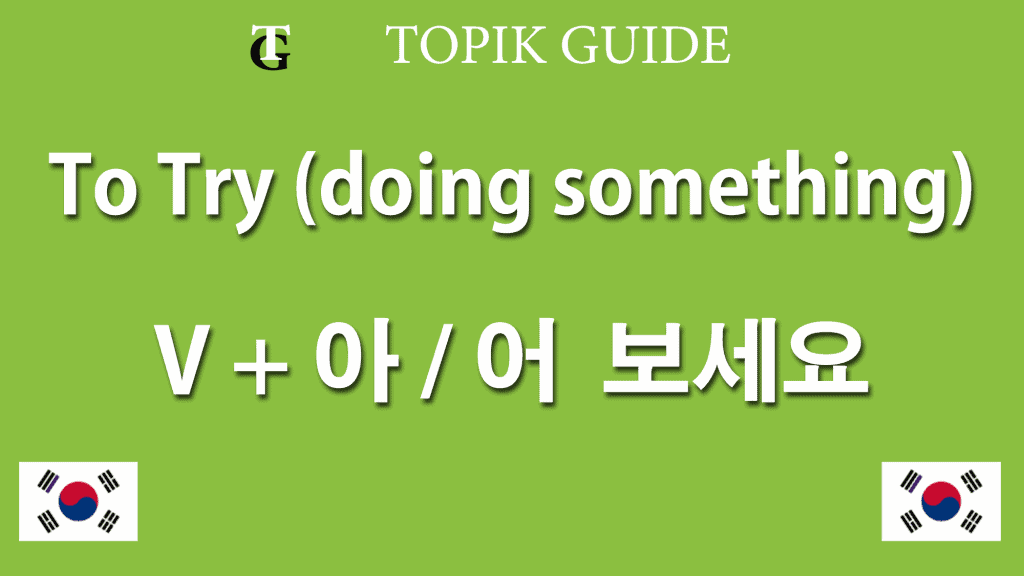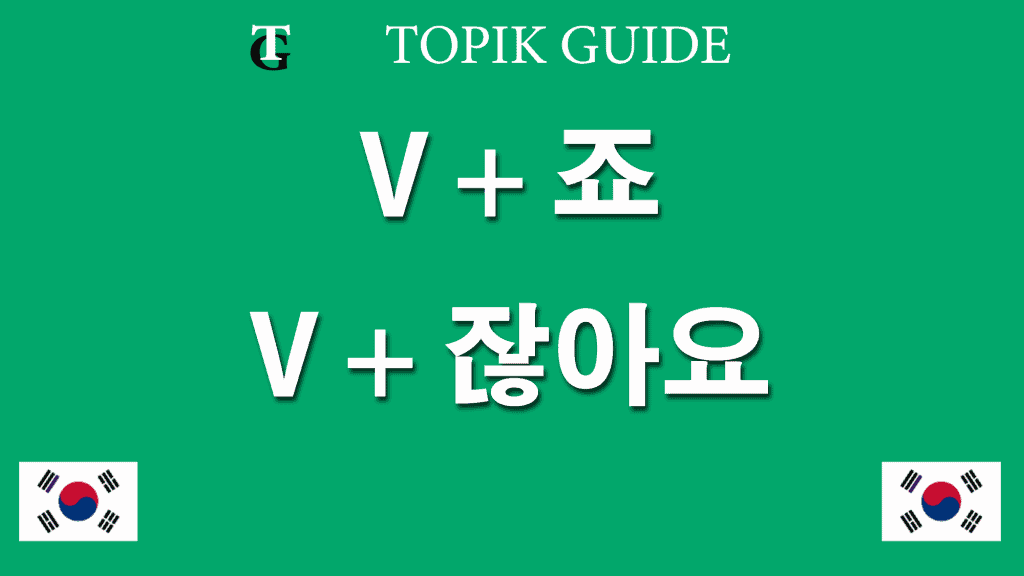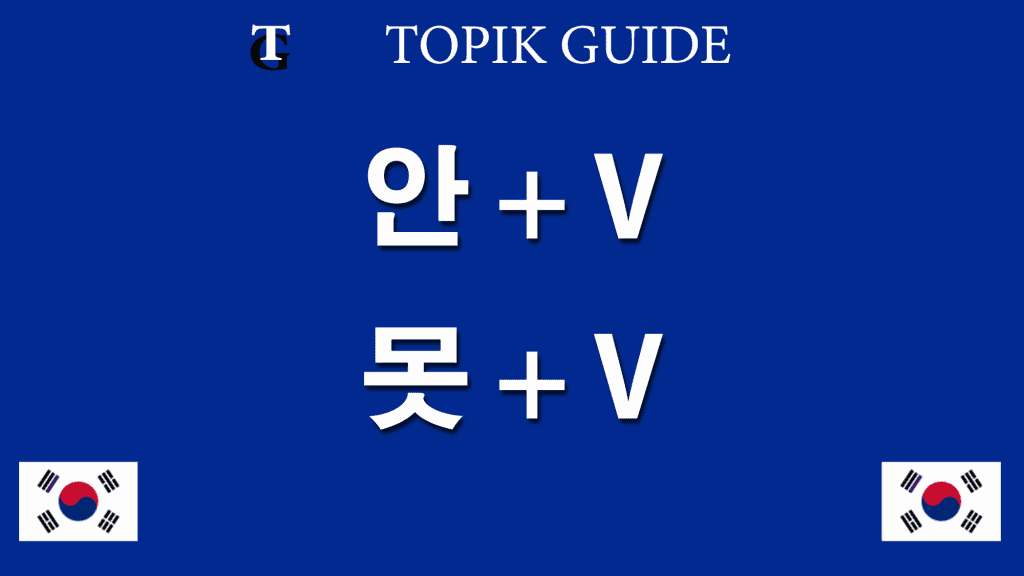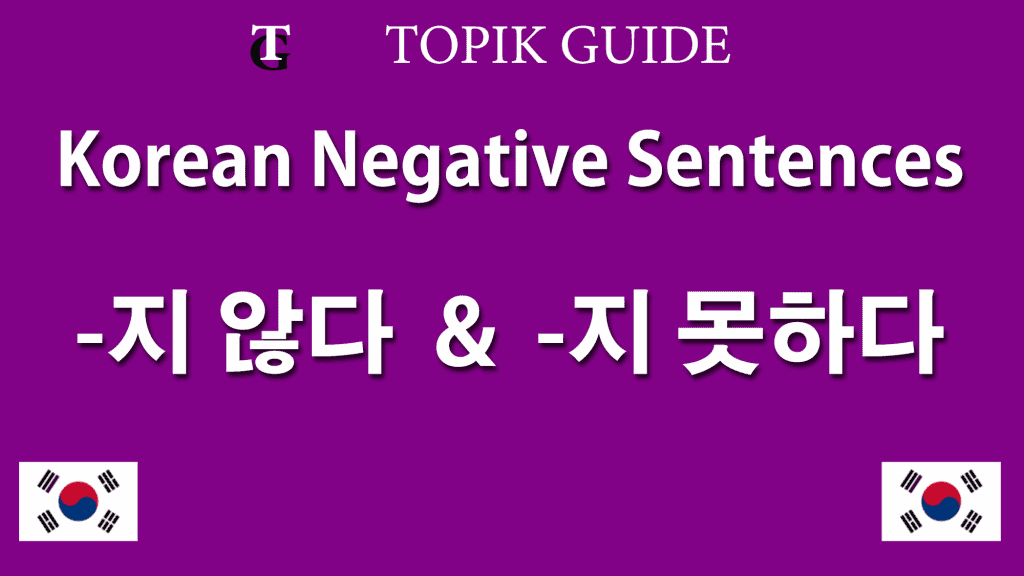Want to improve your Korean listening and speaking skills without going through boring textbooks? Korean dramas may be a great option for you. Korean dramas [Read More]


Best Self-Study Course to Prepare for TOPIK Test

Want to improve your Korean listening and speaking skills without going through boring textbooks? Korean dramas may be a great option for you. Korean dramas [Read More]

When people decide to learn a foreign language, they generally think of languages like French, Spanish or German. Even if they are interested in learning [Read More]

The best way to sound like a native Korean is to use Korean exclamatory expressions or interjections frequently when having a conversation. The exclamations not [Read More]

Korean is considered one of the difficult languages to learn for English speakers. US Foreign Service Institute puts Korean in Category V of language difficulty [Read More]

Both 좋아요 and 좋아해요 are used to express liking for something but they are not exactly same. Both words are used differently and many beginner [Read More]

This is basic Korean grammar series for beginner level Korean language learners. These grammar lessons are useful for people preparing for TOPIK I. In this [Read More]

This is basic Korean grammar series for beginner level Korean language learners. These grammar lessons are useful for people preparing for TOPIK I. In this [Read More]

This is basic Korean grammar series for beginner level Korean language learners. These grammar lessons are useful for people preparing for TOPIK I. In this [Read More]

This is basic Korean grammar series for beginner level Korean language learners. These grammar lessons are useful for people preparing for TOPIK I. In this [Read More]

This is basic Korean grammar series for beginner level Korean language learners. These grammar lessons are useful for people preparing for TOPIK I. In this [Read More]

This is basic Korean grammar series for beginner level Korean language learners. These grammar lessons are useful for people preparing for TOPIK I. In this [Read More]

This is basic Korean grammar series for beginner level Korean language learners. These grammar lessons are useful for people preparing for TOPIK I. In this [Read More]

In this grammar lesson, we will learn 았어요/었어요 Past Tense Korean Verb Ending. [Read More]

In this grammar lesson, we will learn 아요/어요 & ㅂ니다/습니다 Present Tense Korean Verb Ending. [Read More]

In this grammar lesson, we will learn Korean verb ending – 있다/없다 (To Exist/Have). [Read More]

In this grammar lesson, we will learn Korean verb ending – 입니다/예요/이에요 (To be – Is/Am/Are). [Read More]

In this lesson you will learn how to use Korean Particles 의 (‘S), 도 (Also). [Read More]

In this lesson you will learn how to use Korean topic Particles 나 / 이나 which mean – “OR”. [Read More]

In this lesson, we will learn the correct usage of Korean particles 와/과/하고/랑. They all mean “And” but are used differently. Watch the video below [Read More]

In this lesson, we will learn the correct usage of Korean particles 에게-에게서 and 한테-한테서. 에게 and 한테 mean “To” while 에게서 and 한테서 mean ‘From’. Watch [Read More]
Page [tcb_pagination_current_page] of [tcb_pagination_total_pages]